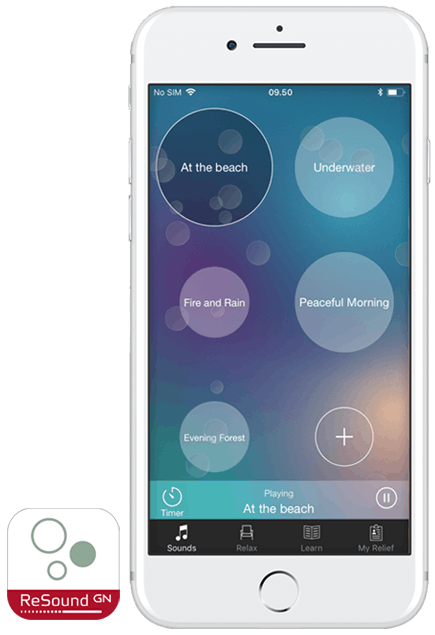The ReSound Tinnitus Relief app is currently unavailable on the Google Play Store. We are working on a solution and apologize for any inconvenience during this time.
Tinnitus - ringing in the ears
It can happen anywhere and at any time - while talking on the phone, during a presentation at work, or even when you’re simply sitting in silence. You hear a noise that no one else seems to hear and that doesn’t seem to have a source. While others may not experience the exact sound, you’re not alone. You may have tinnitus - one of the most common health conditions in the world that affects between 10 and 15% of the global population on a regular basis.










